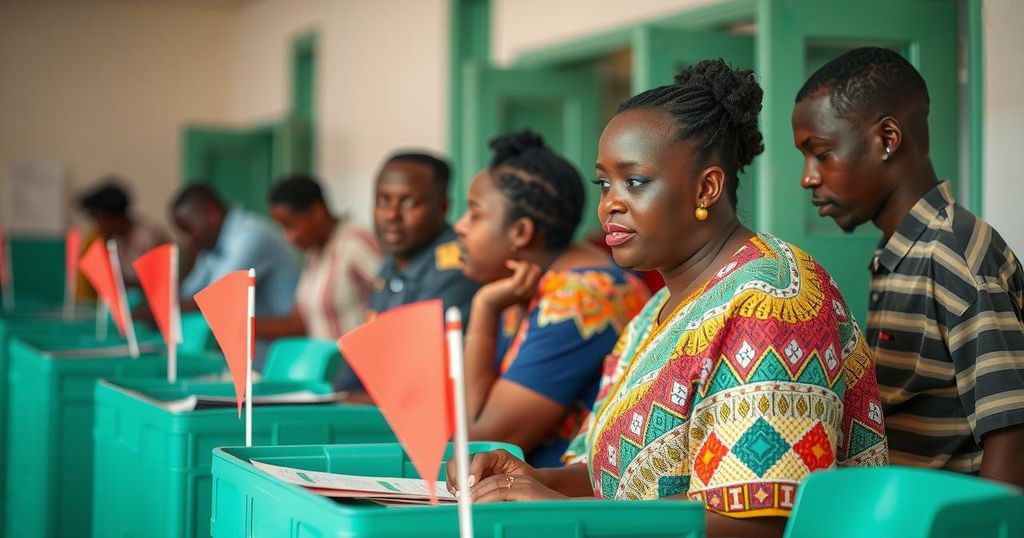Ghanaian Elections: A Critical Test for Democracy Amid Economic Turmoil

Ghana’s presidential and legislative elections have begun, testing the country’s democracy amid severe economic struggles. Approximately 18.7 million registered voters face limited hope for substantial change from the main candidates, raising concerns about the nation’s political future in a region plagued by instability.
Polls have commenced in Ghana for presidential and legislative elections, marking a critical moment for the nation amidst a severe economic crisis. With a voter registration of approximately 18.7 million individuals, these elections are viewed as pivotal for the country’s democratic integrity, particularly against a backdrop of rising extremist violence and military coups across the region. However, many citizens express skepticism about the prospects for meaningful change, as the principal candidates appear to offer limited solutions to the ongoing economic challenges facing the nation.
Ghana is currently grappling with one of its most challenging economic periods in decades, characterized by rising inflation and deteriorating living standards. This situation has resulted in increased public discontent and political tension as citizens seek effective leadership capable of addressing these pressing issues. The elections take place in a broader regional context where democratic principles are increasingly under threat, emphasizing the importance of Ghana’s electoral process as a reflection of stability and governance in West Africa.
The ongoing electoral process in Ghana stands as a crucial indicator of the country’s commitment to democracy, particularly in light of the prevailing economic difficulties and regional instability. While there is widespread participation in the elections, the effectiveness of the candidates in addressing the economic concerns will ultimately determine the future direction of the nation. The elections are not only significant for Ghana but also for the broader West African political landscape.
Original Source: www.washingtonpost.com






